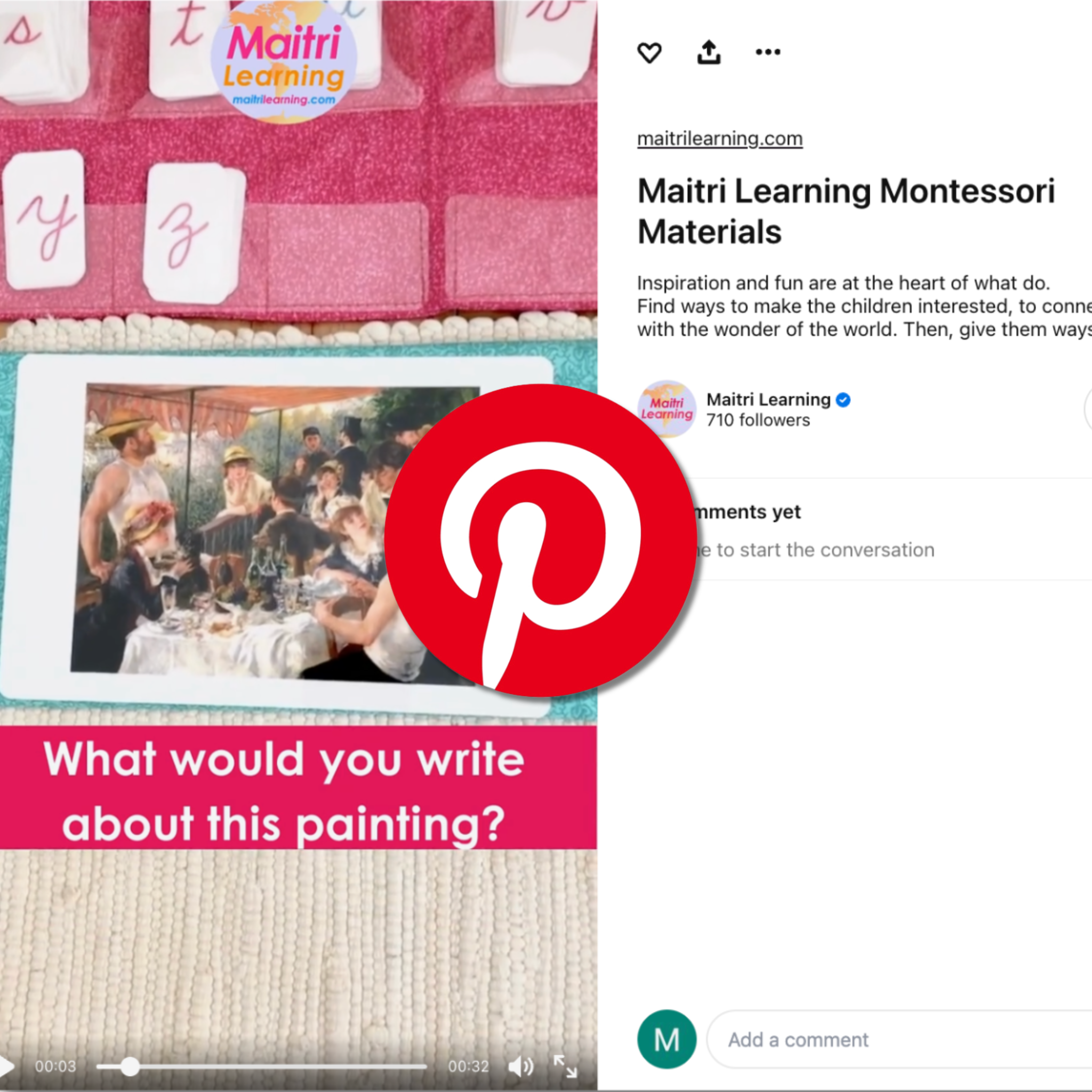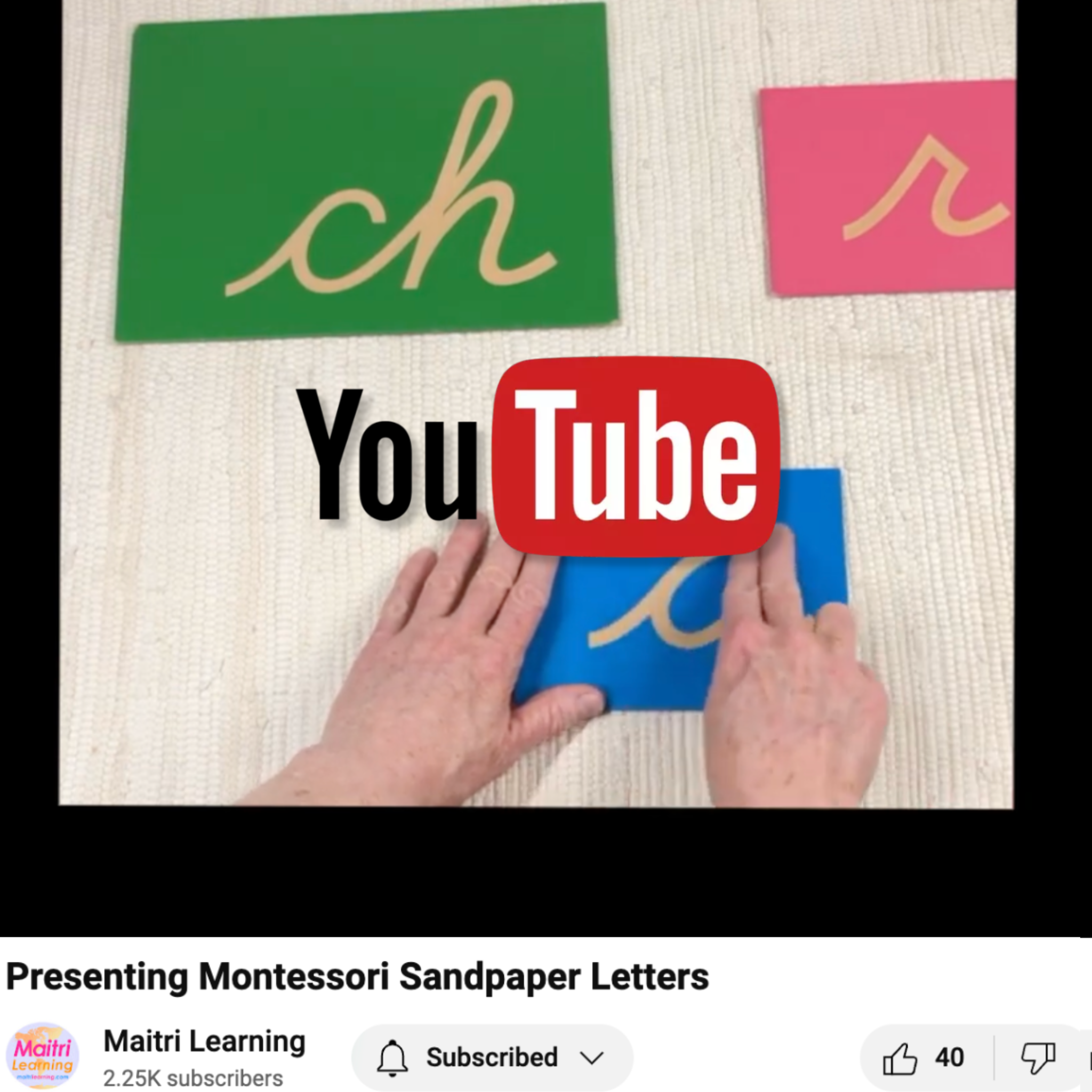Guiding Wild Preschoolers
 Sometimes the children in our classrooms seem about as far away from our vision of the Montessori “normalized” child as they can get! Don’t worry. The potential to concentrate and manifest peace is actually there within every child (and adult). Here are a few quick points to help you remain calm and helpful if you find yourself with a room full of firecrackers.
Sometimes the children in our classrooms seem about as far away from our vision of the Montessori “normalized” child as they can get! Don’t worry. The potential to concentrate and manifest peace is actually there within every child (and adult). Here are a few quick points to help you remain calm and helpful if you find yourself with a room full of firecrackers.
Key points to remember
First, in the preschool years executive functions (like inhibitory control, or inhibiting unskillful actions) are just developing. Children don’t arrive at school with their self-regulation all in place. A large part of our work in the preschool years is to help children develop the capacity to regulate their own behavior. We do this by teaching them how to follow a logical sequence, respond to natural consequences (e.g., spilling water and cleaning it up), be kind with others, etc. So, if you are seeing lots of challenging behavior, it could just be normal development. They may need more time immersed in an environment of Freedom with Limits and opportunities to concentrate.
Second, the Montessori environment will give children myriad opportunities to learn to regulate their own behavior. Remember that the Montessori environment includes (1) the carefully prepared materials/physical space, (2) the trained adult, and (3) a mixed age group of children.
The Prepared Environment
Most of the materials have a control of error built into them. This means the adult does not need to point out if the child has made a mistake—the materials will show them! The biggest challenge here is letting this happen,… especially when the ceramic handwashing basin is about to be dropped on the tile floor! But remember, it is the natural consequences of the world that will truly teach the child, not the adult’s lecturing/correcting.
The Mixed Age Group
Children are naturally driven to be part of their social group. Assuming you have some children in the room who have a reasonable amount of self-regulation in place, the other children will ultimately follow their lead. Even if you don’t have children who are settled, work with the children who are eager and willing. They will help the others. And, of course, the more settled children love to tell the others what to do and how to do it. Just yesterday I saw a four-year-old girl go over to a three-year-old boy, rearrange the work on his table, and tell him, “That won’t work. You have to set it up this way.” The boy, who would have had a fit if an adult had done the same thing, just looked up at her and smiled with smitten eyes. Win-win.
The Trained Adult

Tangible actions you can take
Intervene Indirectly
I've written some details about this in our blog post on "Intervening with Tough Behavior." In sum, you want to intervene indirectly as much as possible, primarily by showing up nearby the troublesome events. Instead of correcting the children, you also want to redirect the attention to something more skillful. That is the overriding goal: get them to focus on some purposeful work and then the tricky things will fall away. Do not draw attention to the difficult things. If you focus on it, the children will too and then you’ll have a room full of police officers patrolling around looking for trouble.
Collect Data
There is power in numbers. Be sure you are documenting what’s troubling (collecting data) so you can figure out what’s really going on. That means, you got it, you should be observing every day! Even at the beginning of the year, make time to sit yourself down, watch, and write (three minutes/day is great for August/September but nudge it up to 15 minutes a day as soon as you can). In your notes, clearly document each incidence of destructive, aggressive behavior. Be clinical, not subjective in your notes. That means you don’t write that the child was angry but instead you write that he was grimacing, red-faced, and growling. Include the date, time, and observed behavior.
After you’ve done this for at least a week, get a cup of tea and sit down after school to review what you have recorded and look for patterns. You could even do it in the lunch room and invite the input of your colleagues (the most amazing wisdom arises in the lunch room). Does the trouble always happen around transition times? Is it when you turn on music? Is it when a particular adult tries to “help?"
Once you’ve figured out the causative factor(s), address them by adjusting the environment, offering grace and courtesy lessons, etc. After a few weeks, you should notice a significant decrease in tricky behaviors. It’s hard to invest this time early in the year when the to do list seems endless. But, observation is indeed an investment that will pay off five-fold later in the year. For more information, read this short piece by Ginni Sackett (yes, I am a fan) on How to Record an Observation Event, read this exerpt from Dr. Montessori herself called Suggestions and Remarks upon Observing Children, and watch this Observation video from Montessori Guide.
Keep Them Close
When I was in my second year of teaching, I was gifted with a 3-year-old who I felt sure would turn out to be big trouble as an adult; the kind who would make the news for doing some terrible thing. I did not like this child (hard to admit but true). So, I asked for help. My trainer said to keep him close. As she expected, his behavior was trickiest right around transition times. So, before a transition occurred, I had to go to him first, tell him what was about to happen, support him in cleaning up his work and then ask him to come with me and help a little while I tidied up or got ready (sometimes I would say, “It’s just so helpful for me to be near you sometimes. I like you so much.”) This made an immediate difference in his daily troubles.
I have to confess that I was totally faking this affection for him. The truth is, my dislike had spread throughout the room. The other children were blaming him for things he hadn’t done; and I thought I had hidden my feelings! When I decided to “fake it till I make it,” things improved. After a few weeks, I heard one of the other children say the the difficult child was my favorite! The children had stopped demonizing him—a good beginning. His difficult behaviors never completely resolved but they diminished. I had to keep an eye on him always for the next two years but I did not have to have him physically next to me for long.
Transitional Materials
I know that if you have many firecrackers this year, it will be hard to keep them all next to you. If you have a reliable co-teacher in the room, enlist their help and don't be afraid to have transitional materials in your room! If they will concentrate on legos, give them legos until things settle enough that you can get them interested and engaged with practical life, sensorial, or the other lessons they need. Make a point to give the lessons that you think would appeal to them on a rug right next to their lego rug. Once they are interested in something purposeful and real, your work will get a whole lot easier; concentration is soon to follow and with that comes normalization.
Friends
If any of your older children are friends with the firecrackers, you might ask them to take on the special job of helping the child as you would during the transition times. Find a friend for each of these children; observe to see who they are naturally drawn to. Ultimately, it is the other children who will help them the most.
Don’t correct, Re-direct
Whatever you do, remember to keep your hands off of the children. It is natural for we adults to take a hand and guide a child away from trouble or towards something they need to address. But, I would advise caution here. Remember, in Montessori, our aim is to inspire, not require (love that). So, you must work on your ways of enticing the children towards the work they need. Begin your Grace and Courtesy lessons with a song or finger play as a way to invite more children to the rug. Put yourself right next to the “wild” child and recite a tongue twister. Do anything to subtly gain their attention and then offer the lesson they need. Remember, we don’t want to correct, we want to redirect. When you need to offer Grace and Courtesy lessons, do so at a neutral moment, not in the heat of the trouble.
Get More Help
Finally, if things are really just totally rambunctious, there is the option of getting more help in your room. But I recommend that you do so only for a short time to allow the children to normalize. Limit this to a few weeks so that the adults do not become overwhelming and controlling—something we adults tend to do. And guide those adults carefully. Their main job will be just standing/sitting near the children, reading little stories, singing little songs, and finding ways to keep the children interested in something while you give lessons galore. Remember, it is concentration on purposeful work that will ultimately help every single child. Our task is to help them find that work. I know, I’m a broken record on this point.
Let us know if this is useful or what strategies you have used by offering a question or comment below. It takes a village!
PS: The lovely Keep Calm and Give a Three Period Lesson pin can be found at Hoshiko Studios, a lovely Montessori-inspired gifts company founded by my friend and wonderful Montessori teacher/trainer, Lee Lanou.








1 comment
A beautiful blog explains how to nurture preschoolers’ natural curiosity while maintaining gentle guidance. This is a must-read for Montessori educators!
kidscastle
Leave a comment
This site is protected by hCaptcha and the hCaptcha Privacy Policy and Terms of Service apply.